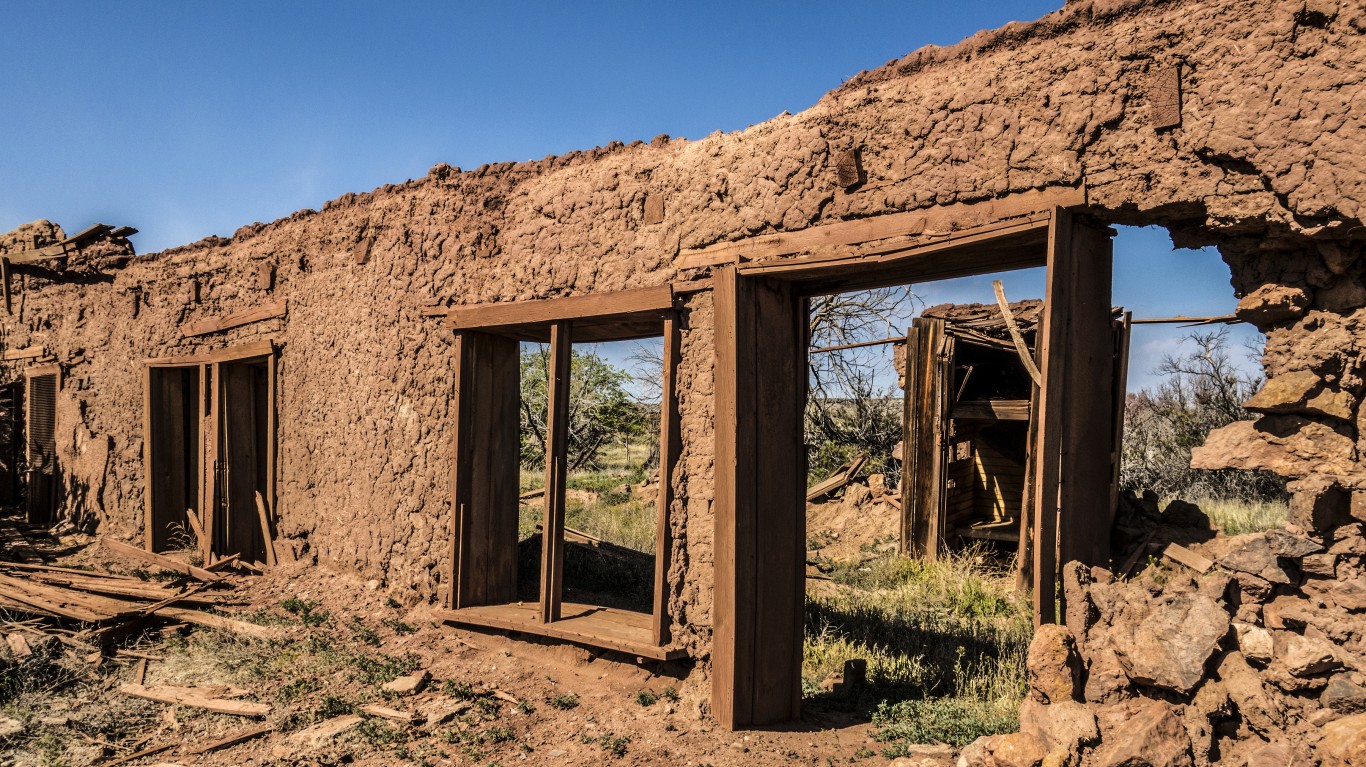

Of the 15 counties and county equivalents in Arizona with current data, Apache County has had the highest number of deaths attributed to COVID-19 per capita to date. Since the first COVID-19-related death was reported in the United States on Feb. 29, 2020, 278 people have died of the virus in Apache County — or about 389 for every 100,000 people.
For reference, across all of Arizona, the population-adjusted coronavirus death toll stands at 157 for every 100,000 people.
Just as the population-adjusted death toll in Apache County exceeds that of the state as a whole, it is also higher than the comparable national figure. To date, 387,551 Americans have died of COVID-19- related causes, equal to about 118 deaths per 100,000 people.
As is often the case in places with higher than average coronavirus fatalities per capita, confirmed cases of the virus per capita are also higher in Apache County than they are across much of the rest of the state. The cumulative, population-adjusted number of infections in the county stands at 12,128 per 100,000 people, higher than the comparable rate across all of Arizona of 9,472 for every 100,000 people.
Counties and county equivalents where COVID-19 deaths per capita are relatively high are often home to larger populations of individuals at increased risk of severe illness if they are infected. One such group is retirement-age Americans. People 65 and older are at least 90 times more likely to die from the novel coronavirus, if infected, than those in the 18 to 29 age range. Though it has the highest COVID-19 mortality rate per capita in the state, Apache County is not home to an especially large retirement-age population. An estimated 15.0% of county residents are 65 or older, compared to the 17.1% share of all Arizona residents.
Though the U.S. has one of the highest per capita COVID-19 death rates in the world, Americans infected with the virus today appear more likely to survive than those who were infected earlier in the pandemic. Medical care providers now have months of experience treating COVID-19, and over that period have established more effective practices in treating the disease. According to one study conducted by researchers at the NYU Grossman School of Medicine released in October, the chances of death among critically ill patients was 18 percentage points lower in August 2020 than it was in March.
And now that inoculations against the coronavirus are underway in the United States, the spread of the disease will eventually slow, which will inevitably contribute to a reduction in deaths per capita. Still, of the total COVID-19 related deaths to date in Apache County, 19 occurred within the last week.
All COVID-19 data used in this story is current as of Jan. 18, 2021.
| Place: | County COVID deaths per 100,000 people: | Total COVID deaths: | County COVID cases per 100,000 people: | Total COVID cases: |
|---|---|---|---|---|
| Apache County | 389 | 278 | 12,128 | 8,674 |
| Navajo County | 361 | 392 | 12,413 | 13,494 |
| Gila County | 313 | 167 | 10,131 | 5,410 |
| Yuma County | 305 | 633 | 15,957 | 33,163 |
| Santa Cruz County | 283 | 132 | 15,168 | 7,066 |
| La Paz County | 222 | 46 | 9,864 | 2,042 |
| Mohave County | 213 | 439 | 8,161 | 16,816 |
| Coconino County | 175 | 245 | 10,032 | 14,066 |
| Graham County | 153 | 58 | 11,568 | 4,382 |
| Maricopa County | 151 | 6,443 | 9,910 | 421,551 |
| Cochise County | 151 | 191 | 7,636 | 9,643 |
| Yavapai County | 145 | 325 | 6,606 | 14,839 |
| Pima County | 139 | 1,422 | 8,901 | 90,765 |
| Pinal County | 117 | 490 | 8,789 | 36,888 |
| Greenlee County | 42 | 4 | 5,082 | 483 |
Take This Retirement Quiz To Get Matched With An Advisor Now (Sponsored)
Are you ready for retirement? Planning for retirement can be overwhelming, that’s why it could be a good idea to speak to a fiduciary financial advisor about your goals today.
Start by taking this retirement quiz right here from SmartAsset that will match you with up to 3 financial advisors that serve your area and beyond in 5 minutes. Smart Asset is now matching over 50,000 people a month.
Click here now to get started.
Thank you for reading! Have some feedback for us?
Contact the 24/7 Wall St. editorial team.



